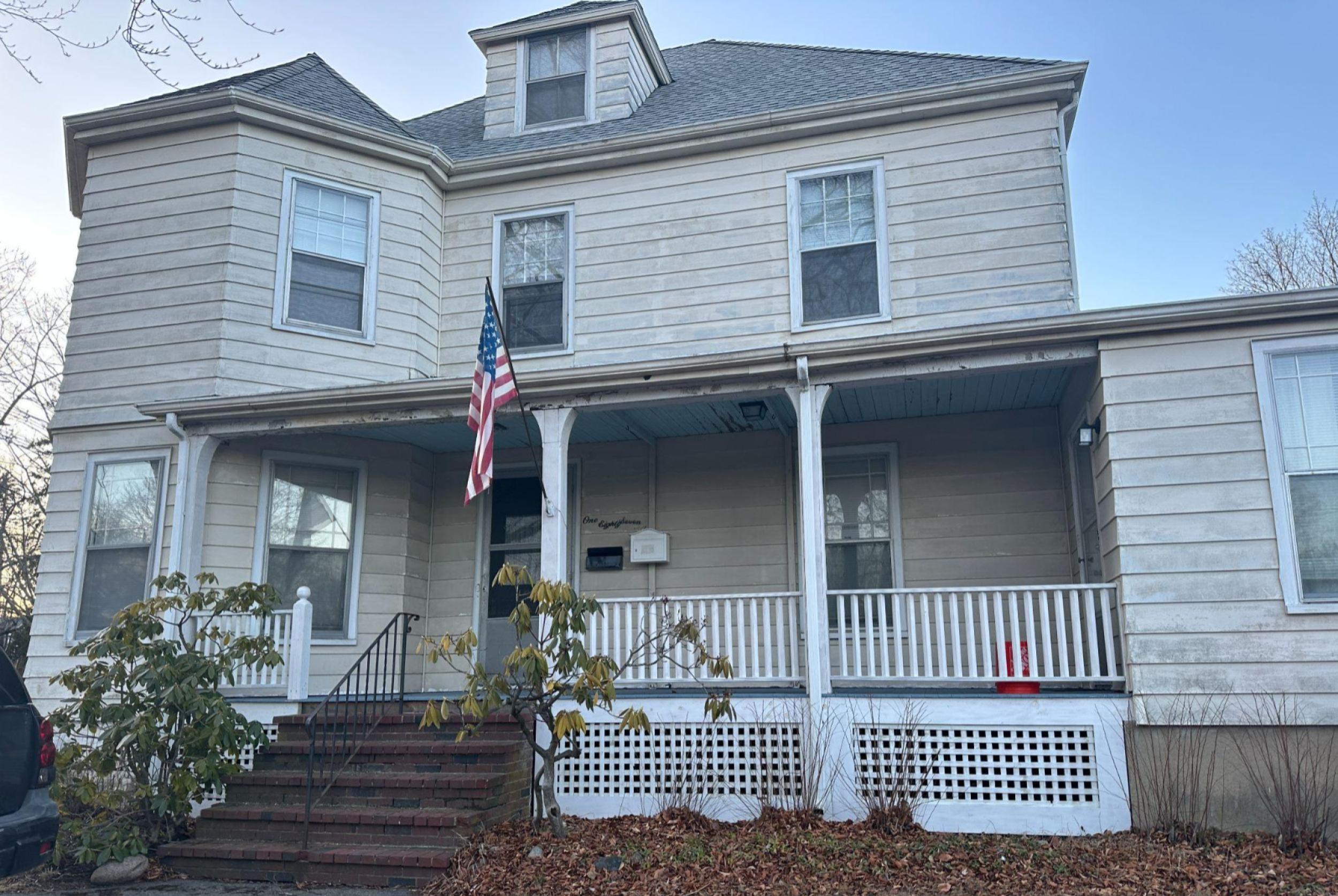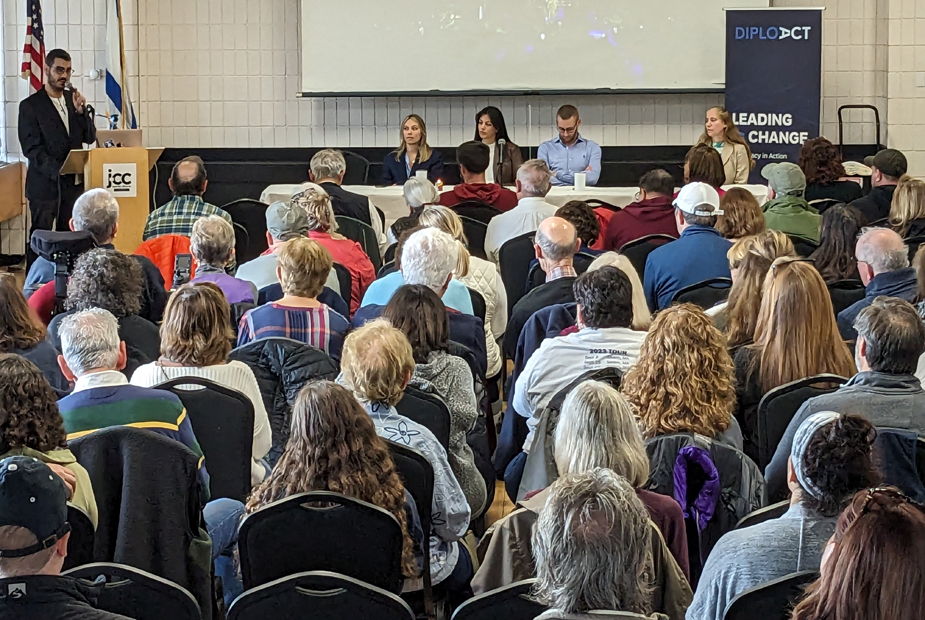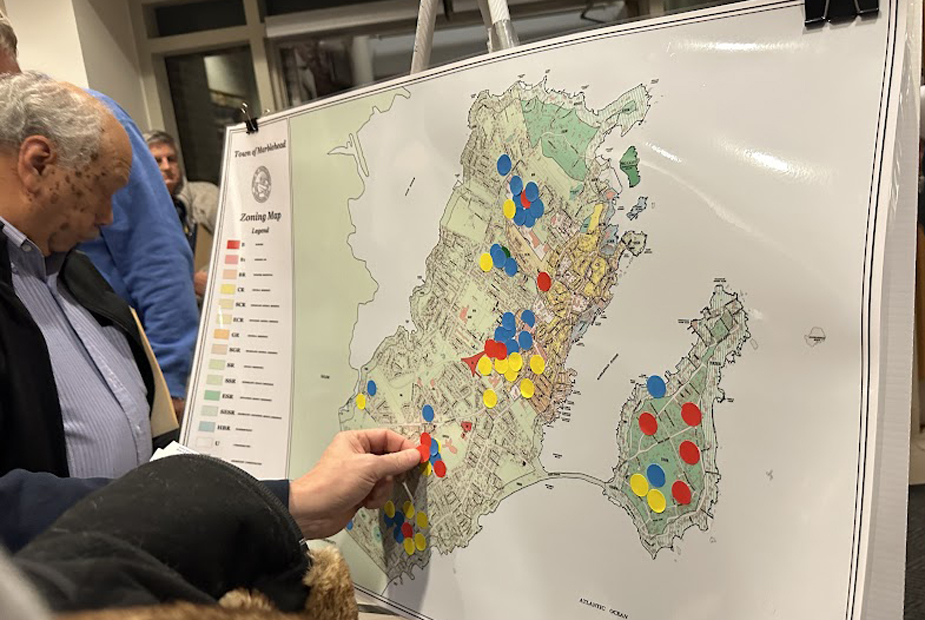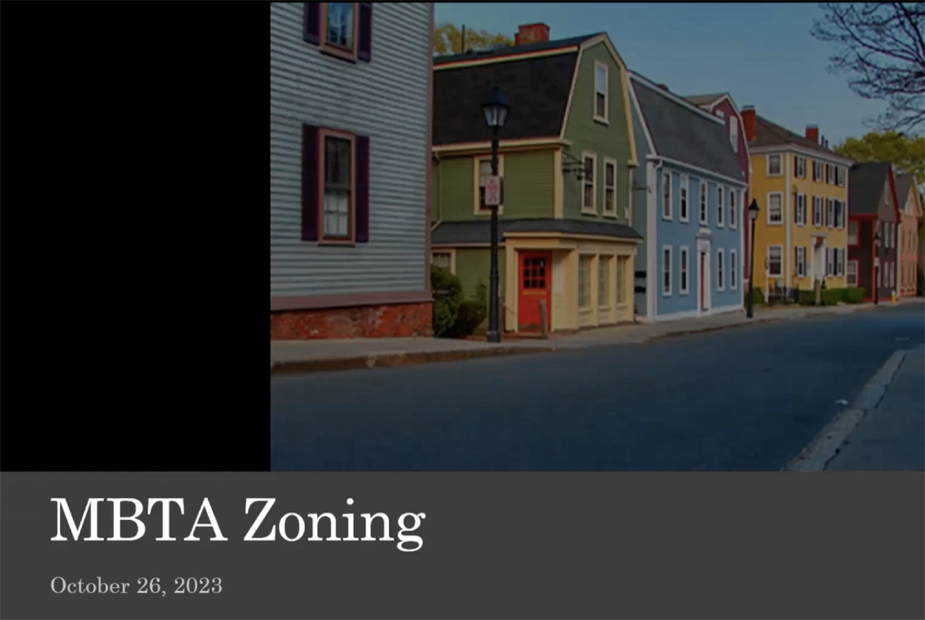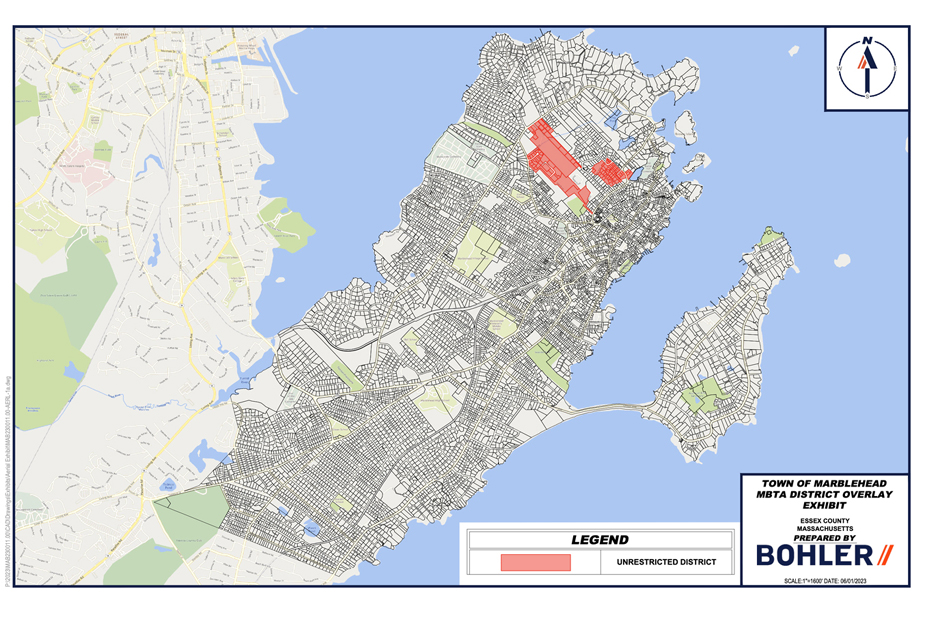Humphrey Sober House: A First for Marblehead
By Lena Robinson and Jenn Schaeffner
Marblehead’s first-ever official sober house has been making waves on social media in recent weeks. But with little public information available, the discussion has been based largely on rumor and speculation. Earlier this week Marblehead Beacon sat down with Scott Murray, who runs the newly opened Humphrey Sober House (part of the Vanderburgh House Community), and the home’s House Mentor, who we identify only by his first name: Billy.
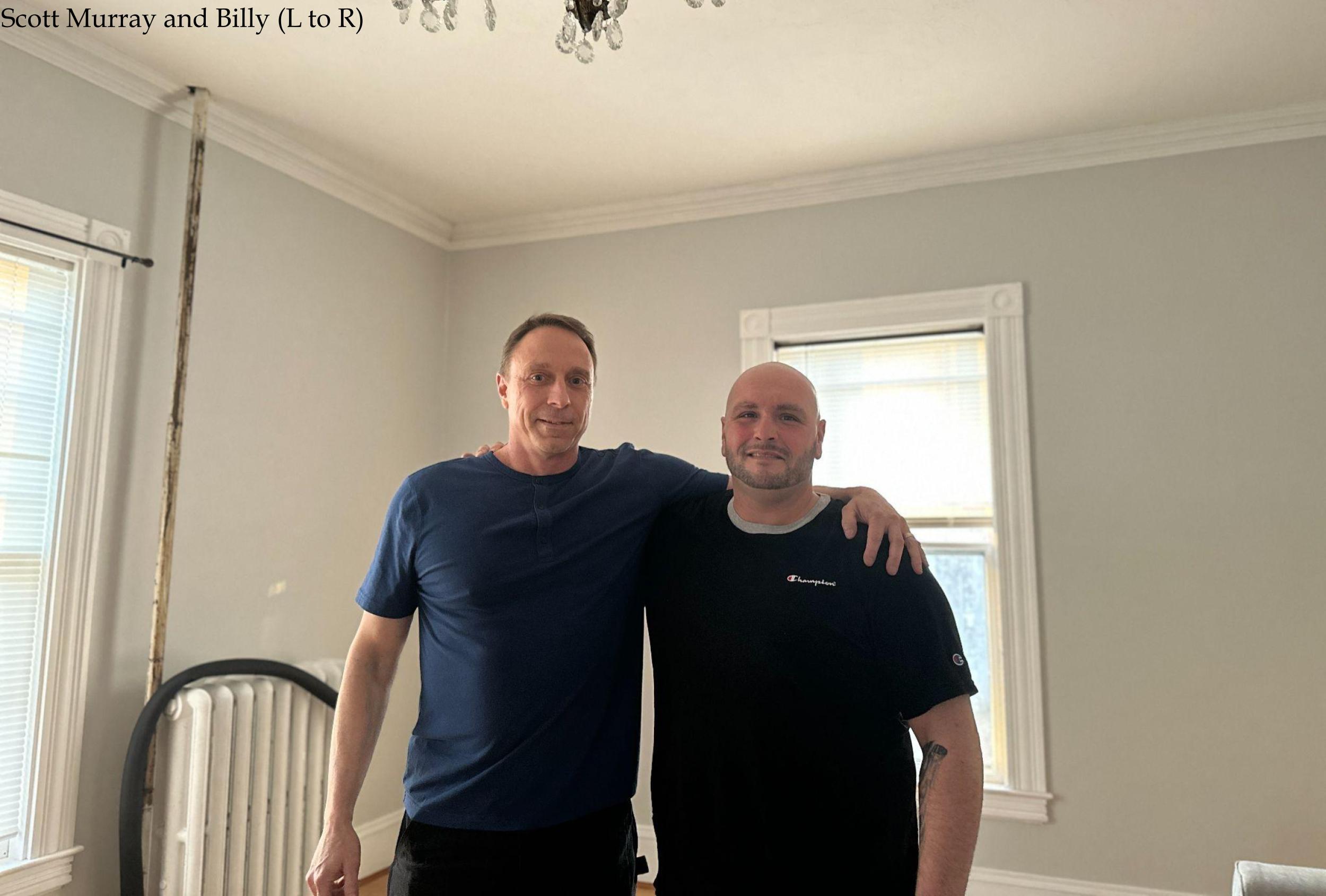
Scott Murray: Firefighter, Social Worker, Addiction Counselor
A captain with the Marblehead Fire Department (MFD), Murray – who graduated from Marblehead High School in 1987 – sees the ravages of drug and alcohol addiction through the lens of a first responder. He has served with the MFD since January 1999, but that is not his only source of insight into the world of addiction. Murray also is a licensed social worker and certified addiction counselor, and he has been employed for the past 24 years in the psychiatric unit at Salem Hospital, handling case management while working as a mental health counselor and group facilitator. Before that he worked at the now-closed Danvers State Hospital as well as the Boston Regional Medical Center.
In the world of individuals running sober homes, Murray appears to be somewhat of a unicorn – bringing to the table both vast clinical experience and knowledge acquired over decades as a first responder. “Many people I work with have a dual diagnosis,” says Murray, referring to the fact that so often substance abuse is paired with one or more mental health conditions. “So that’s always the question: which came first; did they have depression or bipolar and became…addicted by self-medicating? Or through the use and abuse of alcohol and drugs…did that wreckage and brain damage create the depression and mental illness?”
What is Sober Living?
The phrase “resetting internal structures” comes up frequently in our conversation. Sober living communities, when done correctly, are there to help make this happen, Murray says. “It starts with making your bed; just getting up and doing normal-person stuff,” notes Billy. Murray adds that when someone is dealing with depression or addiction, for instance, “they lose their internal structures” and sober living can help reset those patterns.
Each of the all-male guests is encouraged but not mandated to participate in at least five recovery events per week, which can include meetings such as Alcoholics Anonymous, Narcotics Anonymous, church attendance, and therapy.
Billy is fast to point out that the residents get more than they may otherwise receive in other sober living environments. “Scott goes so above and beyond,” he says, pointing out the myriad ways Murray assists guests, and effectively case manages their lives with them. When the guests are preparing to transition out of sober living, Murray helps them in pursuing next steps and maintaining food stamps. He also writes necessary letters for them and does other things that a social worker/case manager might do, which are far from standard in all sober homes.
Sober Living House Rules & Who Can Live in Humphrey Sober House
We ask the two men how things work when rules are broken. Because they operate on a sort of three-strikes system, if a test comes up dirty, that does not mean an immediate exit from the home. “Everyone is an individual,” says Murray, “and we always say, ‘recovery first.’” If someone “has a slip…in general the way we do it is we send them out on a ‘spin drive,’ where they have to go to a detox or something like that.” Depending on the strike number, the individual may be made to temporarily move out and receive medical clearance before returning, or may have to do an outpatient program that helps him relaunch his sobriety. But there are certain things that are not on the strike system, and result in immediate eviction. Stealing, for example, comes with a zero-tolerance policy.
In terms of determining who can live at the home, Murray says the guests run the gamut from young to old, and the process to move in begins with an in-depth interview. Some are on parole or probation, and these guests, says Murray, “tend to be very, very good guests,” because “they have stuff hanging over their heads.” Others come wanting to stay in a sober home as their final chapter before heading back to their families, who, in some cases, have told them that they can only return upon proving they can navigate successfully in a sober living environment. And almost all, with the exception of some of the very youngest guests, maintain jobs. Sober living is “typically a little farther on down the line…and by the time they get here, they’ll have a fairly substantial amount of clean time,” notes Billy.
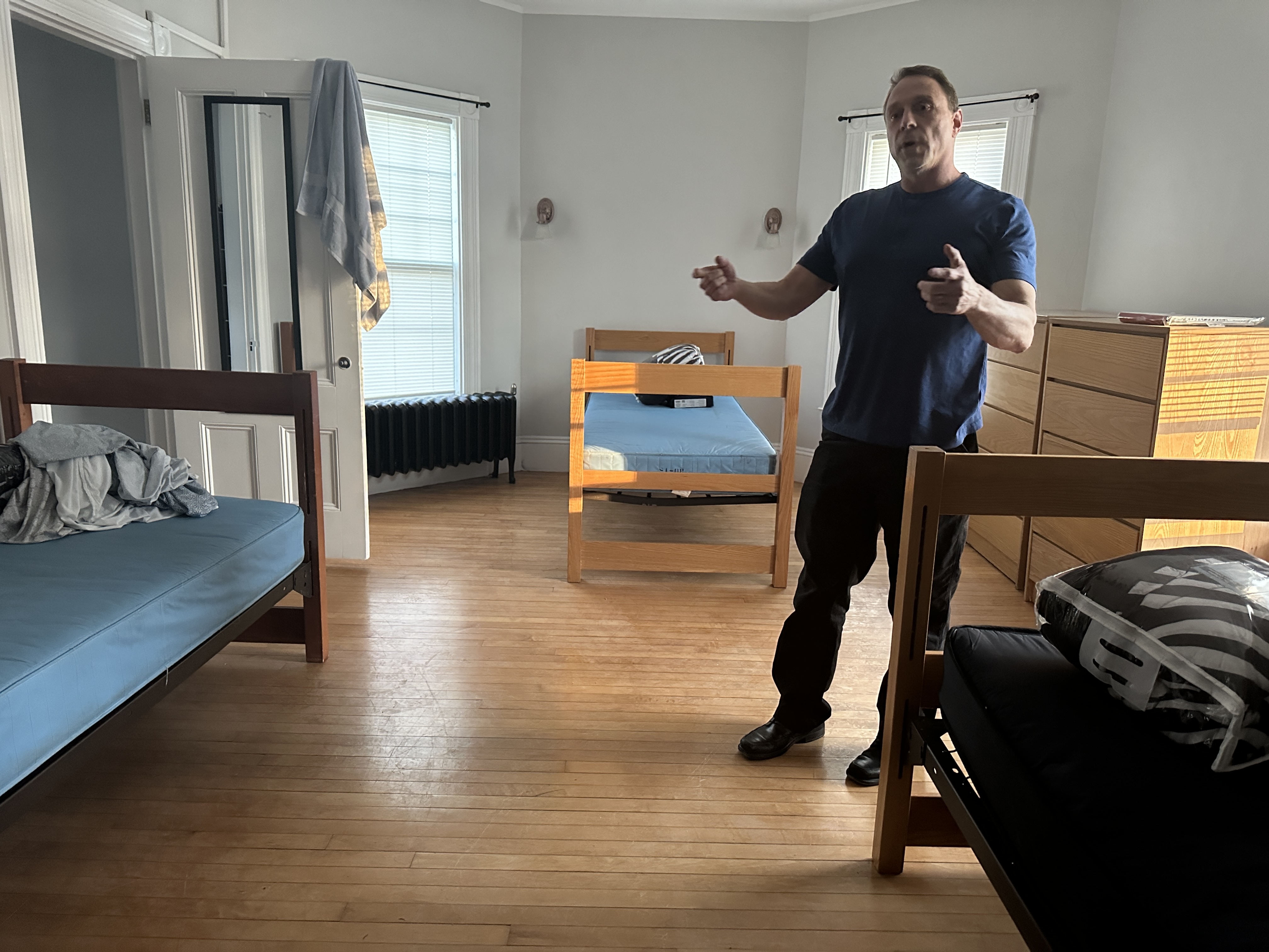
Though individuals who have been incarcerated, are on parole or probation, or have other involvement in the criminal justice system are welcome to apply, there are two specific backgrounds that preclude living at Humphrey Sober House. “We won’t take anyone with sex offenses, and we won’t take anyone with a fire-starting history,” says Murray.
What Do Local Residents Have to Say?
Reaction on the local Facebook group “Anything Marblehead 01945,” which boasts more than 8,500 members, has been overwhelmingly positive. “This is the best, Marblehead is finally giving people who need help a place to go,” says one commenter. “I wish the best for everyone who goes there.” Another adds, “I’d rather live next to a sober house than a bar.”
We reached out to residents living in the vicinity of Humphrey Sober House to get their opinions. One Rockaway Avenue resident, who asked not to be named, expressed concerns about the unregulated nature of sober homes in Massachusetts that seems to “enable the proliferation of poorly run, yet extremely profitable, recovery homes.” This town resident noted that photos depicted on Humphrey Sober House’s website suggest that the home “needs work, yet they are accepting residents’ applications online” and wondered if the proprietor may consider a “Q&A forum for the community to learn more and ask questions,” adding that “residents [could] have a better shot for long-term recovery if they are in a well-run home that is part of the community.”
We asked both Murray and Vanderburgh House Community spokesperson, Jessica Thibodeau whether they would be amenable to the idea of a community forum, and both said they would. Vanderburgh’s Executive Director, Hunter Foote, “said he’s excited to have a Q & A,” Thibodeau told Marblehead Beacon. Ahead of such a forum, she said, community members are more than welcome to submit questions or thoughts to them at marketing@vanderburghhouse.com.
Additionally, Murray said he is available to speak with any neighbor or local who has concerns or questions about the enterprise. “Whatever concerns [people have], we’ll work it out,” Murray says, noting that he has already made assurances to one neighbor regarding outdoor smoking locations, and has offered his personal mobile phone number to him and others for any future concerns.
Reservations among other neighbors and town residents who asked not to be named or quoted remain. In part this appears driven by the “Wild West” nature of unregulated sober homes, and the fact that no notice is required by such homes to individual municipalities or neighbors. Typically abutters and neighbors are required to be notified under local laws when a for-profit or non-profit enterprise with a sizable number of occupants will be moving in. In the case of sober homes, however, federal law prevents such requirements, as explained below.
Laws Governing Sober Homes in Massachusetts
In Massachusetts there are few legal barriers to opening a sober home. In fact, under the Americans With Disabilities Act (ADA), persons with addictions who are in recovery and not actively engaged in using illegal drugs may be considered disabled, and may not be discriminated against, including for purposes of housing. Zoning prohibitions also are not allowed, so a commercial sober residence is not required to get specific approval from its municipality or the state, while, for instance, traditional multi-family homes often must. There are, however, available state certifications – sought voluntarily – that designate individual sober homes as having met certain standards meant to enhance reputability.
The Massachusetts Alliance for Sober Housing (MASH) was state-created in 2014, in part to contend with what were unsafe, drug-riddled, and unofficial sober homes in Massachusetts. One of these such homes was in Salem, where multiple individuals died following drug overdoses. While certifications are strictly voluntary, MASH now serves as the “primary agency for accountability of all certified homes in Massachusetts,” which allows state agencies to refer their clients only to such properties.
Vanderburgh House Business Structure
For Murray, when he started down the path to opening his first sober home – North Shore Men’s House in Beverly – he wanted to do so within the confines of what he believed were the highest of standards. He turned to Vanderburgh House Communities, a recovery-home enterprise that purchases real estate and leases the properties out to “operators” like Murray. Similar to a franchise arrangement, Vanderburgh House owns the Humphrey Sober House and Murray leases it. Most of the running of the home – with the exception of major construction and things like window replacement – are in Murray’s domain. He is responsible for both the administrative efforts involved in matters like selecting guests and collecting rent, as well as the big-picture success of the home. And Billy serves as his right hand in all of these pieces that are meant to ensure a successful operation.
Vanderburgh House states on its website that it promises operators the opportunity to be a part of “social entrepreneurship” where they may “build significant wealth while building a better world.”
As things stand, Murray says, while another location he runs– the Beverly, Massachusetts Vanderburgh property – is fully MASH certified, the Marblehead one is working on finishing its application for MASH certification, as it only opened last week and currently has two guests. He and Billy gave us a tour of Humphrey Sober House, which has 20 beds. The home has four bathrooms, with a fifth planned, and multiple bedrooms that include quadruple, triple, double, and single living options. For rooms with multiple beds, Murray says he sticks to MASH’s spacing requirements to avoid overcrowding. And he provides each guest with furnishings and bedding, as well as community spaces in which they may gather.
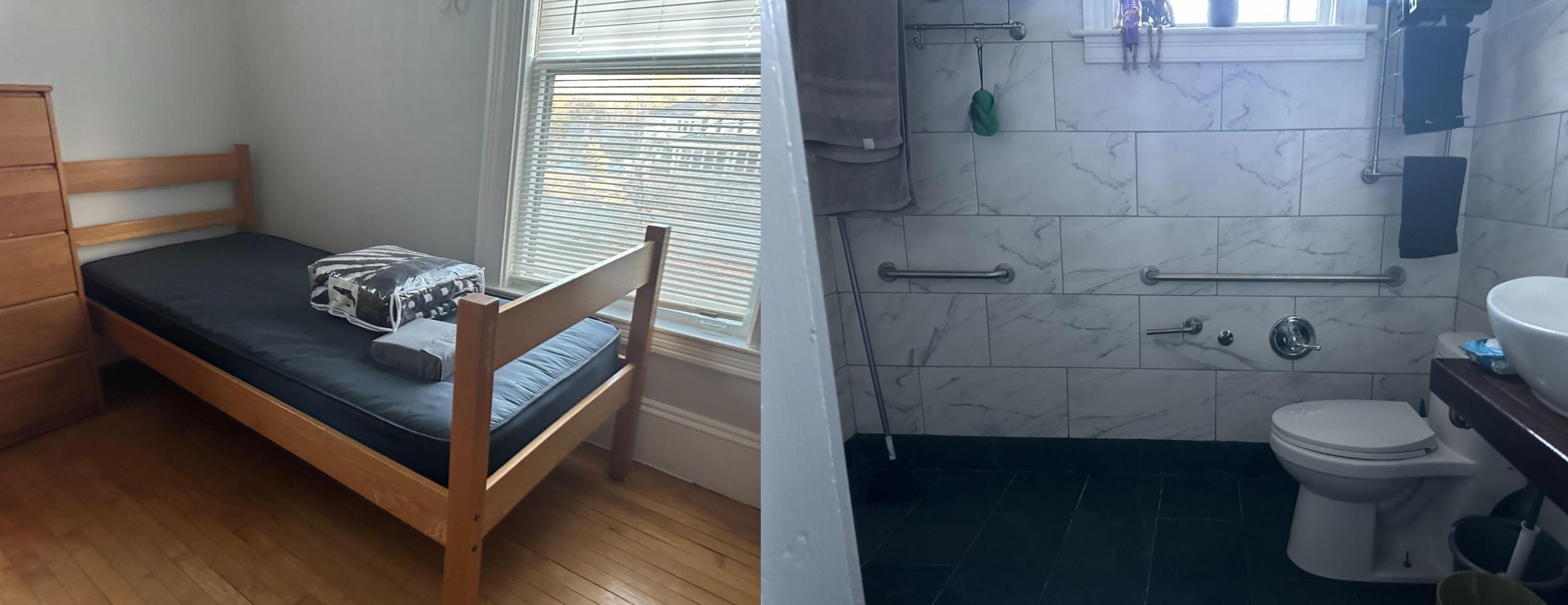
Murray’s Inspiration to Open Humphrey Sober House
“This is a passion project for me,” says Murray, who, as noted above, manages another Vanderburgh property in Beverly: North Shore Sober House. Coming from multiple generations in Marblehead, Murray can rattle off the number of bars that exist in town, as well as the number and locations of support-group meetings across town. At one point, Marblehead was home to more than 35 bars and had some 75 weekly recovery meetings, he says. Though Covid shifted things, there still remain numerous bars and wide access to support meetings, such as Alcoholics Anonymous, Narcotics Anonymous, and others.
Murray himself has been sober for 36 years, he says, after a rocky start as a teenager. He has extreme gratitude to this day for the support to which he had access, which came in the form of a loving family, good friends, and what he says were a first-rate police department and school system. Those early years laid the groundwork for his life’s work at the intersection of mental health, addiction, and first responding.
The House Mentor: This is Personal
One of the unique parts of successful sober living environments is that they often have people running them who themselves are in recovery – people with skin in the game and their own first-hand experiences. Billy is one such individual; recovery is extremely personal for him, as until last year he was himself a guest at the Beverly sober home, eventually earning the opportunity to be its House Mentor before coming over to Marblehead to help from the ground up.
Billy had watched his own life implode years earlier from what began as an opioid pill addiction and turned into criminal behavior that saw him serving serious prison time. “It was all to support my drug habit,” he says. A trail of broken family relationships, a lack of investment in his own success, and exceedingly brief stints of sobriety finally turned around, and now he says he has run out of chances. “If I relapsed, it would be the end for me,” he says. “It’s my last shot.” The world of fentanyl has made the stakes even higher, as he recognizes that as dangerous as opioid addiction has always been, fentanyl has upped the ante to include the always-present possibility of instant death with one pill.
And this time Billy has new incentives everywhere he looks: He was invited back into his teen son’s life and is earning the chance to rekindle broken family relationships with loved ones who have seen his recent exemplary efforts. His family are not the only ones to believe in Billy. A Marblehead native hired him at the out-of-town marina where he works full time during boating season, and it is a job for which he is grateful.
Billy considers himself a partner in recovery with the other men in the home, but he is no chump when it comes to detecting violations. Beyond the rules in place at the home – regular drug and alcohol testing, an evening curfew, a weekly meeting with all residents, locked-up prescription medications, no stealing, and mandatory house chores – “I can look in your face and know what drug you’re on,” says Billy.
“Billy’s got his thumb on the pulse of this place,” says Murray, noting that the men respect and look up to Billy. “And the key to a good sober house is a good house mentor.”
Murray expects his vast network and own hands-on efforts will help bring guests to fill the remaining 18 beds at Humphrey House. In the meantime, he – with Billy at his side – is confident that they can offer Marblehead’s first safe and successful sober living home.
Editor's Note: An earlier version of this article had the incorrect email address for Vanderburgh House. The correct one is updated in the body of the article. It is marketing@vanderburghhouse.com

